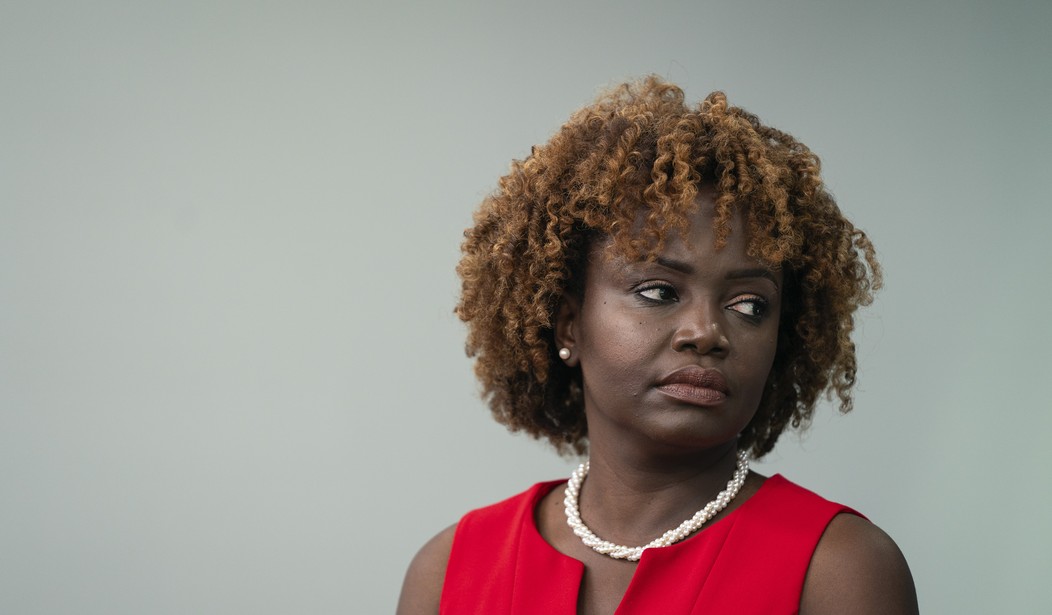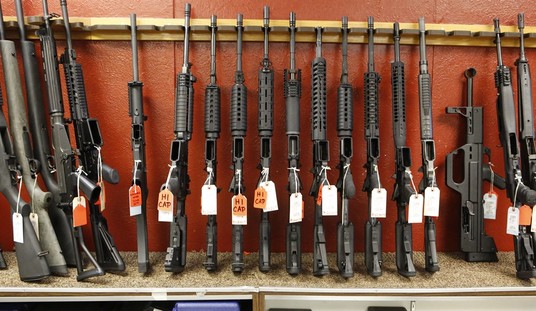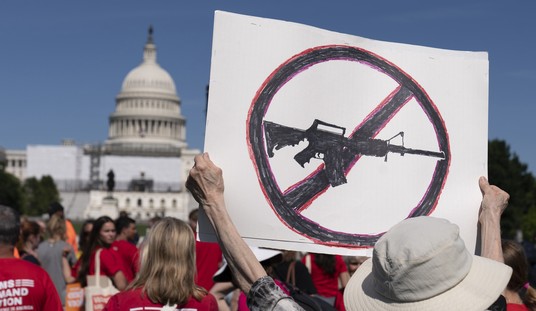With Hunter Biden’s plea deal in shambles thanks to an eagle-eyed judge’s attention to the devil in the details of the DOJ’s agreement, there’s a chance that the president’s son could actually end up having to defend his lie on the Form 4473 he filled out ahead of his background check asserting that he was not an unlawful user of drugs at a time when he admits to regularly using and abusing crack cocaine.
If Hunter actually does end up going to trial on the charge (a possibility I still believe is pretty slim), his attorneys have already floated the idea of challenging the underlying federal statute as a violation of his Second Amendment rights. The DOJ, meanwhile, is asserting in court cases around the country that unlawful users of drugs, and indeed anyone it deems to be non “law-abiding” have no Second Amendment rights whatsoever. I still have my doubts that Biden’s case will end up going to trial, but the White House is already refusing to answer questions about the president’s position on enforcing the statute in question. On Wednesday, CBS News White House correspondent Weijia Jiang tried to get some answers from press secretary Karine Jean-Pierre, only to be met with evasive nothingburgers in response.
Jiang: President Biden has spent most of his political career working on gun laws, on gun reform. Does he believe that someone who is charged with possessing a firearm illegally should be prosecuted to the fullest extent of the law?
KJP: So here I’m going to be — I think I know where this question is going. And I’m just going to continue to say, as it relates to this, the case that we’re seeing in Delaware, I’m just going to not speak to that. It is an independent matter. This is up for the Department of Justice. Even with the question that you’re asking me, it’s one of those legal criminal matters and it’s up to that process, that legal process. I’m just not going to speak to it here.
Jiang: When [Biden as] senator crafted gun legislation… as president, he talks often about the need to get illegal firearms off of our streets. So when someone possesses one illegally, what does the president believe should happen to them?
KJP: The president has been very clear. You just laid out where his position has been, what his policies have been, what he was able to pass into law. I’m going to be very mindful here. I’m going to be very careful because I see where this question is going. And I’m just going to refer you as this has been an independent investigation is overseen by the Department of Justice. I’m going to let them speak to this as they are moving forward.
Were these “gotcha” questions on the part of Jiang? Not really, and she took great pains not to mention Hunter Biden himself even if his plea deal was the reason for her inquiries. While we’ve been told for weeks that there’s nothing unusual or unseemly about the plea deal offered by the Department of Justice, U.S. District Judge Maryellen Noreika had some major concerns with what appear to be some very unusual provisions in the deal itself. Former federal prosecutor Will Scharf had a detailed post on Twitter that outlined those red flags:
Based on conversations with people who were in the courtroom today, and my experience as a former federal prosecutor, I think I know the full story of what happened with the Hunter Biden plea agreement blow-up this morning.
Bear with me, because this is a little complicated:…
— Will Scharf (@willscharf) July 26, 2023
In his tweet, Scharf says that Judge Noreika “smelled a rat”.
Typically, if the Government is offering to a defendant that it will either drop charges or decline to bring new charges in return for the defendant’s guilty plea, the plea is structured under Federal Rule of Criminal Procedure 11(c)(1)(A). An agreement not to prosecute Hunter for FARA violations or other crimes in return for his pleading guilty to the tax misdemeanors, for example, would usually be a (c)(1)(A) plea. This is open, transparent, subject to judicial approval, etc.
In Hunter’s case, according to what folks in the courtroom have told me, Hunter’s plea was structured under Federal Rule of Criminal Procedure 11(c)(1)(B), which is usually just a plea in return for a joint sentencing recommendation only, and contained no information on its face about other potential charges, and contained no clear agreement by DOJ to forego prosecution of other charges.
Instead, DOJ and Hunter’s lawyers effectively hid that part of the agreement in what was publicly described as a pretrial diversion agreement relating to a § 922(g)(3) gun charge against Hunter for being a drug user in possession of a firearm.
That pretrial diversion agreement as written was actually MUCH broader than just the gun charge. If Hunter were to complete probation, the pretrial diversion agreement prevented DOJ from ever bringing charges against Hunter for any crimes relating to the offense conduct discussed in the plea agreement, which was purposely written to include his foreign influence peddling operations in China and elsewhere.
So they put the facts in the plea agreement, but put their non-prosecution agreement in the pretrial diversion agreement, effectively hiding the full scope of what DOJ was offering and Hunter was obtaining through these proceedings. Hunter’s upside from this deal was vast immunity from further prosecution if he finished a couple years of probation, and the public wouldn’t be any the wiser because none of this was clearly stated on the face of the plea agreement, as would normally be the case.
Judge Noreika smelled a rat. She understood that the lawyers were trying to paint her into a corner and hide the ball. Instead, she backed DOJ and Hunter’s lawyers into a corner by pulling all the details out into the open and then indicating that she wasn’t going to approve a deal as broad as what she had discovered.
DOJ, attempting to save face and save its case, then stated on the record that the investigation into Hunter was ongoing and that Hunter remained susceptible to prosecution under FARA. Hunter’s lawyers exploded. They clearly believed that FARA was covered under the deal, because as written, the pretrial diversion agreement language was broad enough to cover it. They blew up the deal, Hunter pled not guilty, and that’s the current state of play.
And so here we are. Hunter’s lawyers and DOJ are going to go off and try to pull together a new set of agreements, likely narrower, to satisfy Judge Noreika. Fortunately, I doubt if FARA or any charges related to Hunter’s foreign influence peddling will be included, which leaves open the possibility of further investigations leading to further prosecutions.
Another oddity in the deal that was only highlighted on Wednesday is the fact that it called for Noreika, not the DOJ, to determine if Biden was meeting the terms of his pre-trial diversion on the federal felony gun charge; something that the U.S. Attorney’s office admitted is far from the norm but argued is necessary to avoid any potential political retribution if Donald Trump wins the presidential election next year. Questions about the particulars of the plea bargain are probably best directed at Attorney General Merrick Garland than Jean-Pierre, but I don’t expect we’d get any straight answers from DOJ either.
What we do know is that this supposedly by-the-books plea deal was instead chock-full of “atypical” provisions, according to Noreika herself. The public deserves to know why those atypical provisions were offered to begin with, but don’t look for anything more than obfuscation and dissembling from the DOJ or the White House going forward.









Join the conversation as a VIP Member